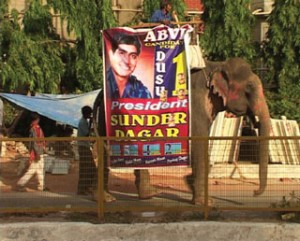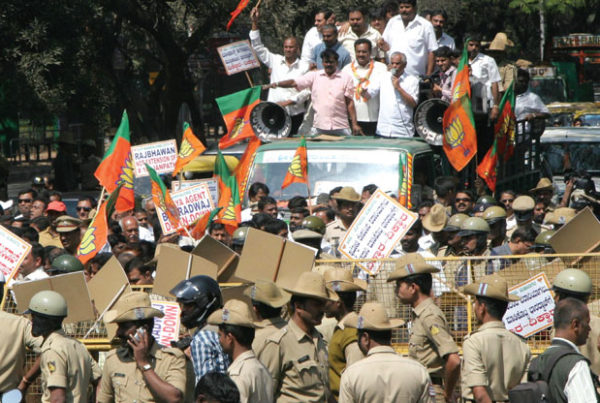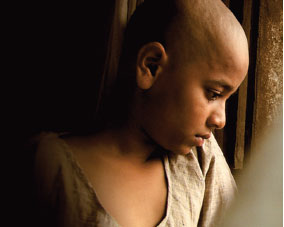In the doc: A column on documentaries
Film: Black Pamphlets
Director: Nitin Pamnani
SYNONYMOUS WITH the idea of voting in elections is the idea to not participate in them. For the left revolutionaries, non-participation is an ideological rejection; a way to show that democracy (as it exists today) has failed. For several among the privileged classes, elections and voting are inconveniences; dismissal is often based on the failure to connect the everyday with the election process.
Nitin Pamnani’s debut film, Black Pamphlets, is an effort to situate an engagement with electoral processes within student campuses — he tracks the annual students’ union elections of Delhi University, one of the largest varsities in the country.
 Campus politics Pamnani’s film puts the spotlight on elections in Delhi University
Campus politics Pamnani’s film puts the spotlight on elections in Delhi UniversityPhoto: Nitin Pamnani
Held every September, these elections mirror the debates that are wrapped around parliamentary polls. College campuses are flooded with pamphlets a week before elections as students, many of them first-time participants in such a process, come to terms with corruption, hollow promises, expenditure limits and surprisingly, ideology.
The student organisations of mainstream political parties such as the Congress, the BJP and the CPM add their own flavour to these elections. “This is a battleground too,” says a seasoned politician, as he instructs youngsters on ways to engage with ‘voters’.
When the film tries to present itself as ‘A Glimpse of Democracy’, things start to go awry
As an idea, presenting student campuses as a microcosm of larger political battlefields is interesting enough to merit a look-in. There are, unfortunately, far too many reasons not to. Equating elections directly to political participation in democratic processes is far too reductionist an idea. It makes no space for the hundreds of movements and campaigns that engage with democracy through protests, strikes, rasta rokos and hundreds of other colourful ways.
Black Pamphlets falls prey to this reductionism by over-reaching its brief. Add to this a visible lament from Pamnani about the failure of revolutionaries such as Bhagat Singh to inspire the youth of today, and there is further erasing of nuances and complexities. As a film about Delhi University elections, it evokes some interest. But when it attempts to present itself as “a glimpse of democracy”, things go awry.
However, Pamnani scores in one area — his film is available for free download online. An idea that is worth considering, if documentary filmmakers seek a larger audience for their works.
—
This article was originally published in Tehelka, a leading independent news magazine in India, known for its investigative journalism.



